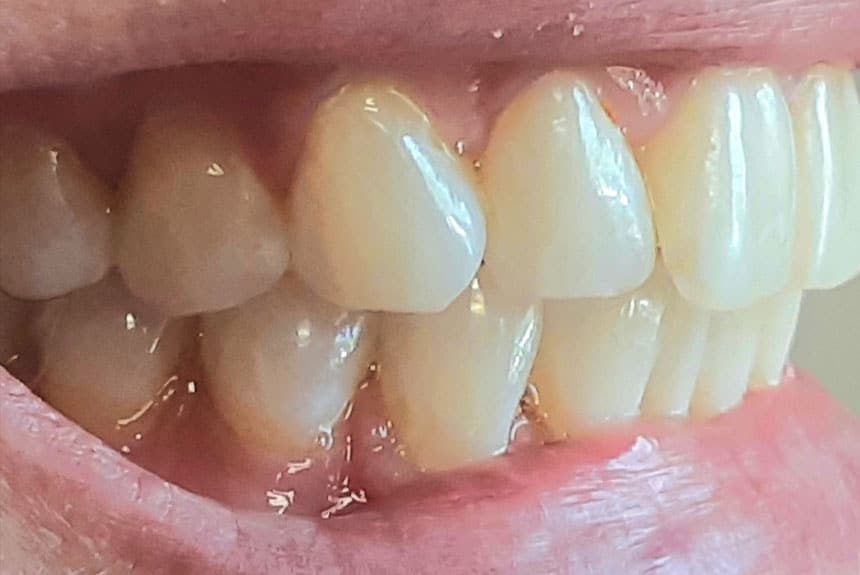Have you had a case of sensitivity to one or more of your teeth when eating or drinking something cold? Are you noticing your smile is looking “long in the tooth”? You may be experiencing recession. Read on to find out what causes gum recession and how you can help to prevent it!

What is Gum Recession?
Gum recession is when the gum travels up or down the tooth exposing part of the root. Some patients notice recession when they begin to experience cold sensitivity when eating favourite foods like ice cream or even drinking an ice cold beverage. Some patients notice that their teeth look yellow close to the gumline. In the case of recession, this yellow appearance is actually the root of the tooth which is why it looks different from the white enamel.
What Causes Recession?
Recession can be caused by many factors with the most predominant cause being grinding or clenching. The forces that you put on your teeth by grinding or clenching actually causes long term damage to the hard and soft structures that hold your teeth in place. With any amount of recession, there is most certainly loss of bone as well. As the gums travel up or down the tooth, the bone will follow. Another cause of recession is misaligned teeth. This is due to uneven forces being applied while chewing or biting. Other causes of gum recession are using toothbrush with hard or medium bristles, brushing in a scrubbing motion and certain parafunctional habits such as biting your nails.
I Have Been Diagnosed as Having Gum Recession – What Now?
The damage has been done, but it doesn’t have to get worse! To manage gum recession, your dentist or dental hygienist may give you instructions on how to brush your teeth in a gentle yet effective manner. It will likely be recommended that you have regular in-office fluoride treatments for two reasons; fluoride will help reduce sensitivity and will also help prevent cavities. The exposed roots of the teeth are much more likely than healthy enamel to get a cavity. Your dentist may recommend a nightguard to help protect your teeth and gums if you grind or clench. Finally, if your recession has been caused by misaligned teeth, your dentist may recommend Invisalign or another orthodontic measure depending on the overall health status of your gums.
If you are having any signs or symptoms that may point to gum recession, contact us to book an appointment to have Dr Mikhail assess your teeth and rule out a more serious condition and to begin the management of your tooth sensitivity!




